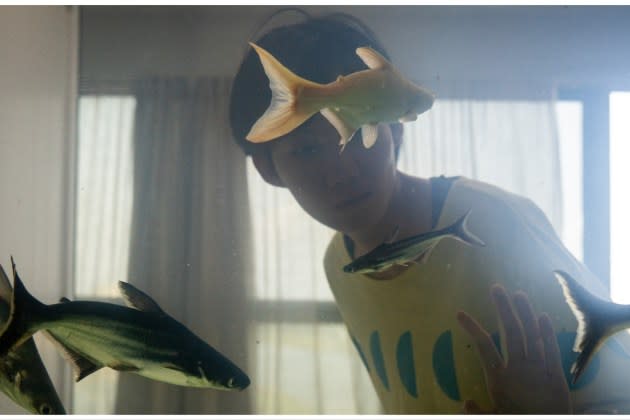Taiwan Uses Democracy, Diversity as Film Industry Calling Card

In January, when Netflix unveiled its slate of Chinese-language original productions for 2024, all of them turned out to be Taiwanese. Not Chinese. And not from Hong Kong, a territory that once produced over 300 movies a year in multiple Chinese dialects.
That’s because, as China has made business dealings harder for Western entertainment and tech companies, they have scaled back their activities and have almost zero digital footprint in the People’s Republic. Similarly, China’s satellite, Hong Kong, has in recent years added censorship and national security concerns to the entertainment equation, causing some films and TV shows — including the locally made Amazon series “Expats” — to omit Hong Kong from their release plans.
More from Variety
Taiwan, in contrast, has sought to fill the gap and to become the default production pole in the outward facing part of the Chinese-language TV sector. Some of the benefits have rubbed off in film, too.
Regarding soft power as a means of projecting a larger version of itself on the world stage, the Taiwan government over the past four years has substantially changed the way it interacts with the entertainment industry — moving from a ministry-led bureaucracy to more of a funding and promotional role.
Democracy, plurality and media freedoms were being actively touted from the stage of November’s Taiwan Creative Content Fest, a film and TV project market.
“The world is reconnecting, TCCF is expanding. [These efforts represent] protection of our culture. We want to showcase our strength, cultural diversity and freedom,” said culture minister Shi Che. It found an immediate response from Dominique Bouttonat, head of France’s National Film Office (CNC).
“France and Taiwan share a common philosophy, one that says freedom is essential to creativity — industrial, political and cultural,” Bouttonat said before signing a co-production pact.
The island territory, which has been self-ruled since 1949, but which China also claims as its own, has the most robust democracy anywhere in Asia. It is also the most LGBTQ-friendly place in Asia, having legalized same-sex marriage in May 2019.
“That like-mindedness creates more opportunities for international stories,” says Patrick Mao Huang, a veteran producer and sales agent with Flash Forward Entertainment.
There is evidence of that throughout the Berlinale. Taiwanese companies are minority co-producers on four new films at the festival, including two in competition, with originating countries as diverse as Mauritania (“Black Tea”), Nepal (“Shambhala”), India (“In the Belly of a Tiger”) and Brazil (“Sleep With Your Eyes Open”), which plays in Berlin’s Encounters section.
Taiwan-based Asian icon Tsai Ming-liang is also back in Berlin with new U.S.-co-produced title, “Abiding Nowhere,” and his restored 2005 Silver Bear-winning provocation “The Wayward Cloud,” a French co-production.
Such a lineup is no accident.
The Taiwan Creative Content Agency (TAICCA) was established in 2019 as a Ministry of Culture-funded intermediary between the public and private sectors, producing and promoting cultural content in film, TV, music, comic books and games. It quickly leaped into venture-funding a handful of local enterprises and in 2020 launched the TCCF market. The following year, TAICCA started supporting film co-productions through its International Co-funding Program (TICP) 1.0 and has invested in 37 projects over the past three years.
This year, however, TAICCA may have got ahead of its domestic constituency. In January, it announced an upgrade of TICP to 2.0, promising increased investment, an accelerated decisions process and better alignment with international marketplace demands.
That last consideration, in particular, sparked an immediate backlash with over 100 Taiwan filmmakers circulating a petition against it. Among them were industry notables Lee Kang Sheng, Lim Giong and Du Tuu-Chih.
Shocked by the backlash, TAICCA took a step back just a few days later. It promised improved transparency over funding decisions, to be clearer about TICP 2.0’s Taiwan cultural criteria and also to simultaneously leave TICP 1.0 in place.
An explanation for the misstep may lie at the local box office which, as in many other territories, has not fully recovered from the COVID hiatus. In particular, fewer Taiwanese commercially oriented films are enjoying success in cinemas. Producers of these films have struggled to increase their sources of revenue locally, through events, partnerships or sponsorship.
Now, just as the arthouse crowd is finding new partnerships in Southeast Asia and the Middle East, beyond its traditional allies in Europe, producers of the bigger-budget, more mainstream pictures are quietly being urged to co-produce with their near neighbors.
That most likely means with the giant South Korean and Japanese industries. Maybe with China too.
Best of Variety
Sign up for Variety’s Newsletter. For the latest news, follow us on Facebook, Twitter, and Instagram.
